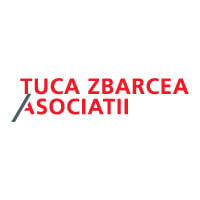

General counsel | RoPower Nuclear



Andrei Nicolae
General counsel | RoPower Nuclear
How do you approach managing legal aspects during periods of instability or crises, and how does your legal strategy align with the broader business strategy to ensure the organisation’s resilience?
Within a company which develops a nuclear project, especially with an innovative technology (SMR), the role of a GC during a crisis becomes even more critical due to the industry’s nature. The GC must lead the legal team with a sharp focus on regulatory compliance, safety standards, and crisis management protocols / procedures. A robust crisis response plan is essential, ensuring every team member is clear on their responsibilities. Transparent and swift communication, both internally and externally, is vital to prevent misinformation and maintain regulatory trust. The GC should be the key link between the legal department and all other stakeholders, ensuring ongoing compliance with safety and environmental laws.
Prioritisation of legal issues is critical, particularly when dealing with high-risk matters such as safety breaches, environmental impact or regulatory scrutiny. The GC must assess these risks quickly and delegate tasks accordingly, allowing the team to manage multiple legal fronts simultaneously. Collaborative problem-solving is crucial, with team members encouraged to contribute insights to ensure that all legal angles are covered comprehensively.
Crucially, the GC must ensure that the legal department’s strategy aligns with the company’s overall business and resilience plan. This involves close collaboration with the C-suite, to ensure legal responses support business continuity, compliance with nuclear safety standards, and crisis recovery efforts. By integrating the legal team’s objectives with the company’s strategic priorities, the GC helps protect the company from legal and operational risks, positioning it for long-term recovery and stability.
In your opinion, what are the main trends that are salient in your country currently (these can be legal, political, economy or business-based)?
In Romania, one of the key trends in the energy sector is the growing focus on innovative nuclear technologies, particularly Small Modular Reactors (SMRs). These technologies are seen as pivotal in shaping the future of energy, offering a safer, more flexible, and cost-effective alternative to traditional large-scale nuclear reactors. Romania is actively exploring the potential of SMRs to meet both its energy needs and its commitment to reducing carbon emissions. The government has shown strong interest in advancing nuclear innovation, with strategic partnerships and regulatory frameworks being developed to support the deployment of these cutting-edge technologies, namely the NuScale SMR technology project in Doicesti. This trend positions Romania as a regional leader in nuclear energy innovation, with SMRs at the forefront of the transition to cleaner, more sustainable power solutions.
General counsel | RoPower Nuclear